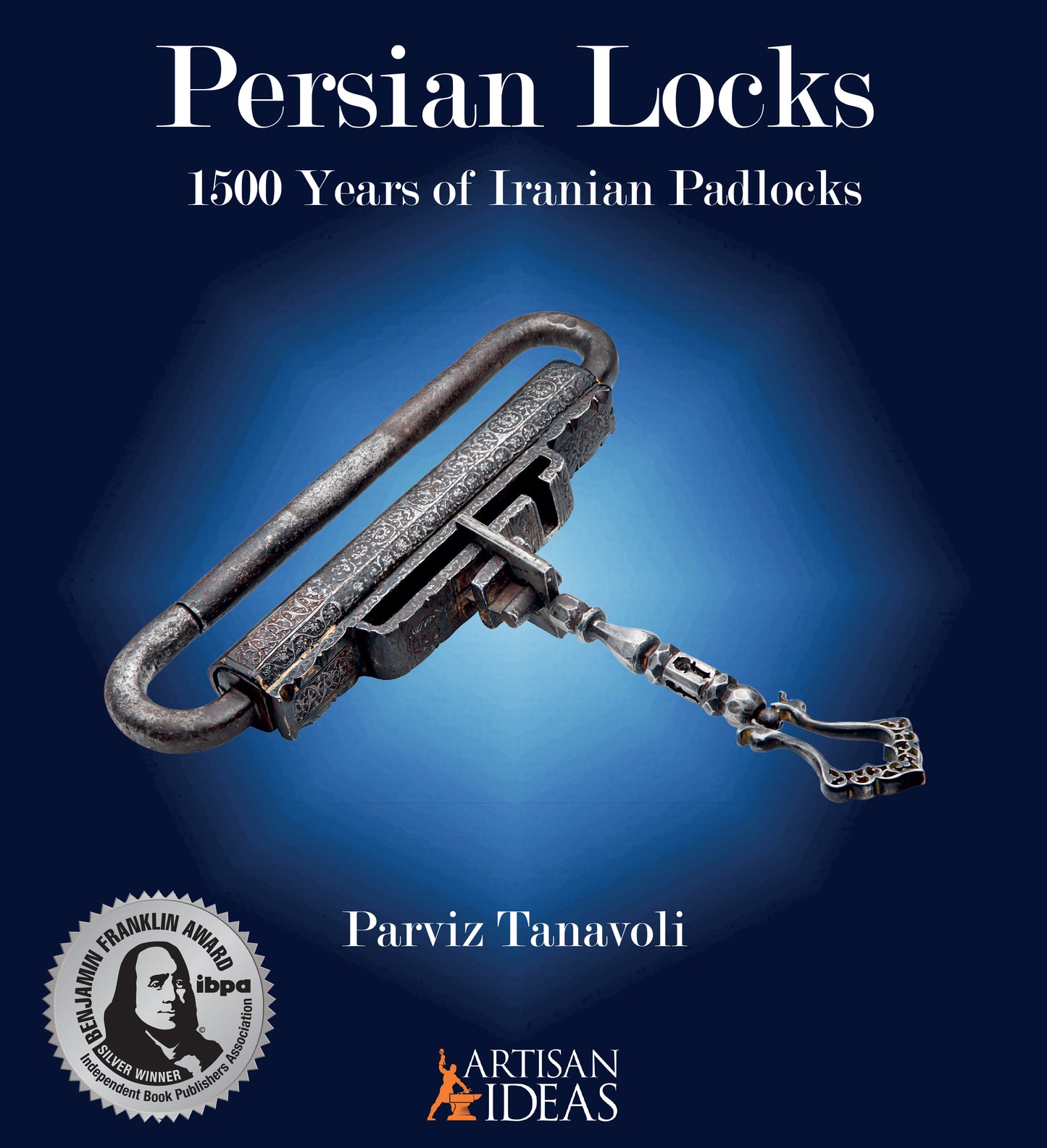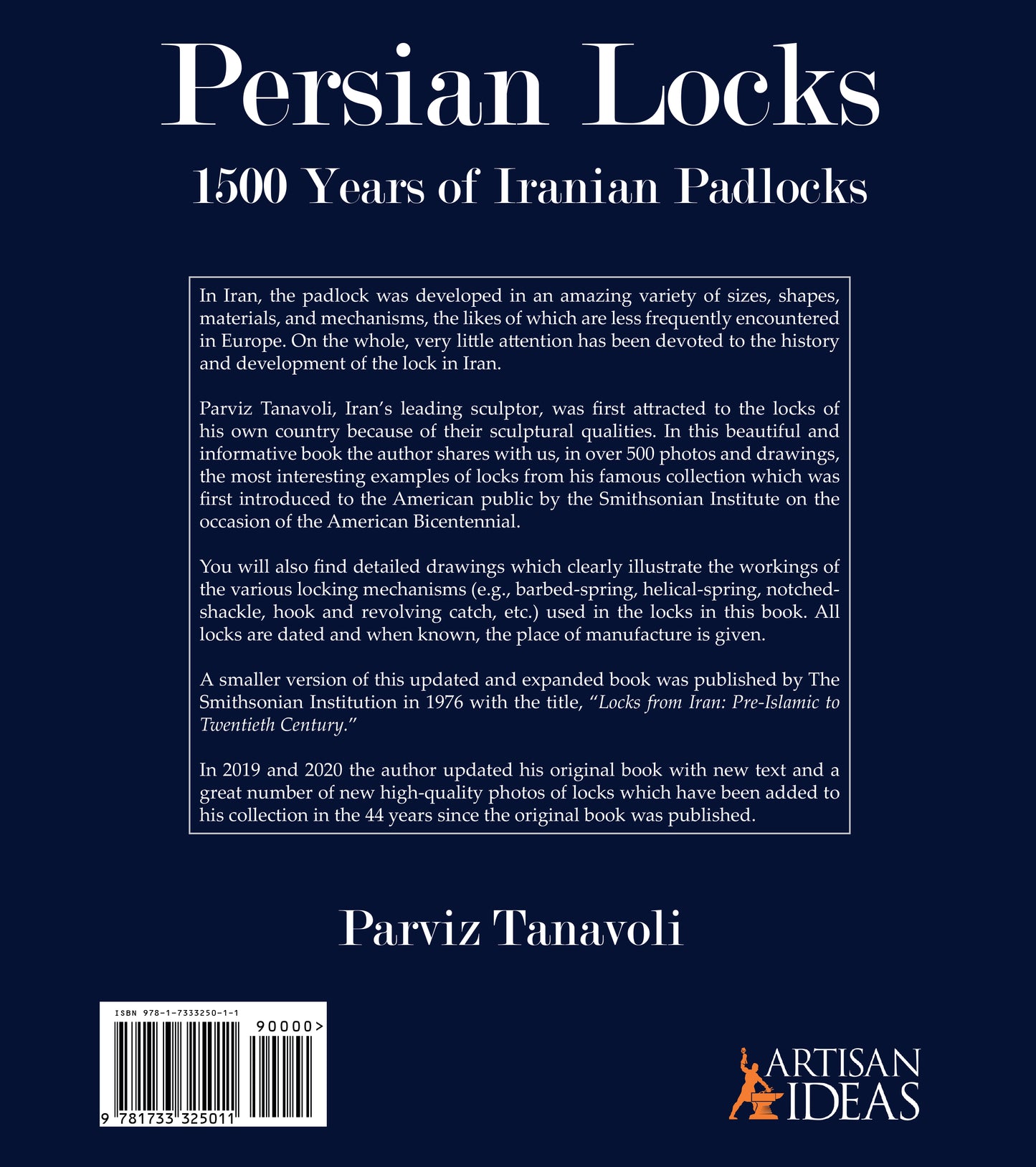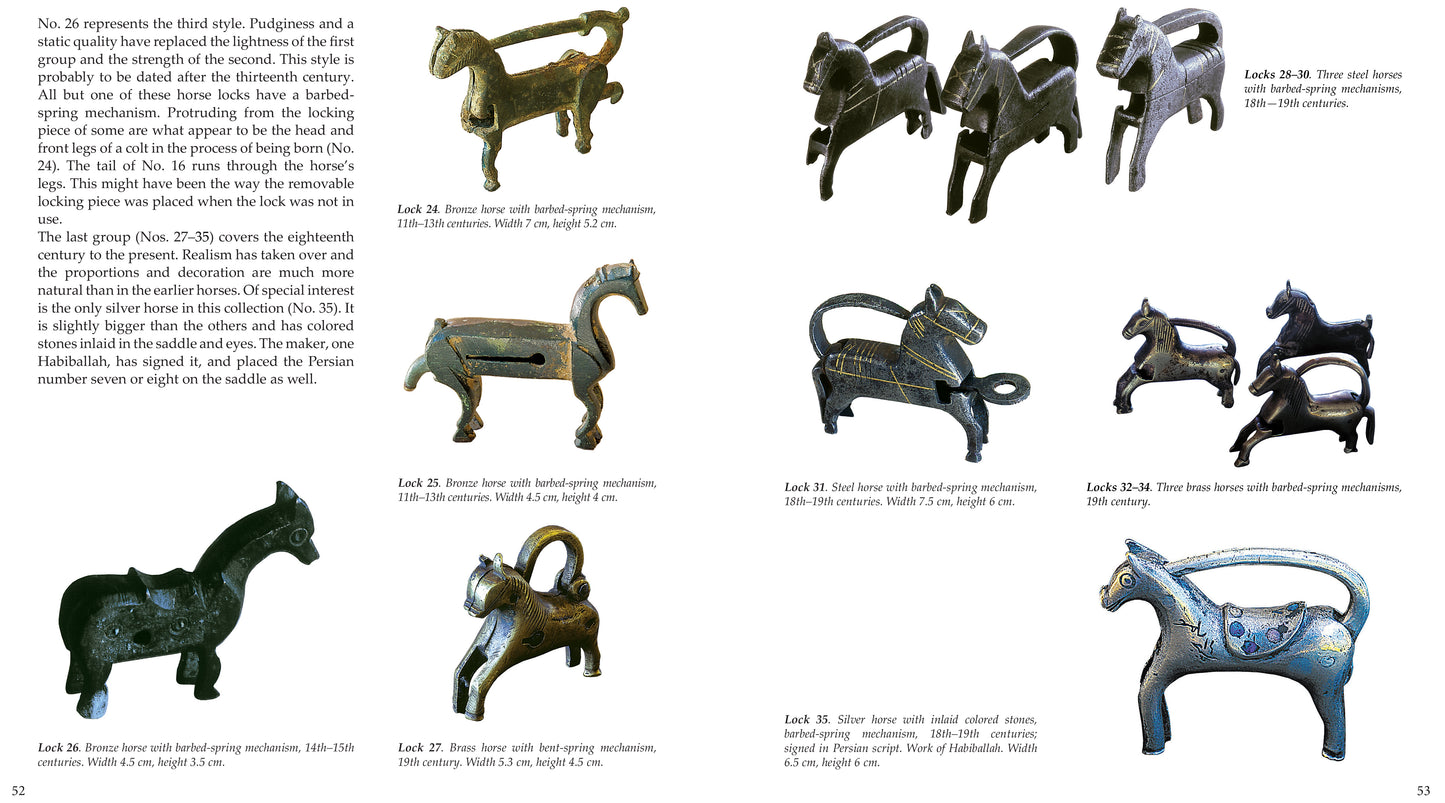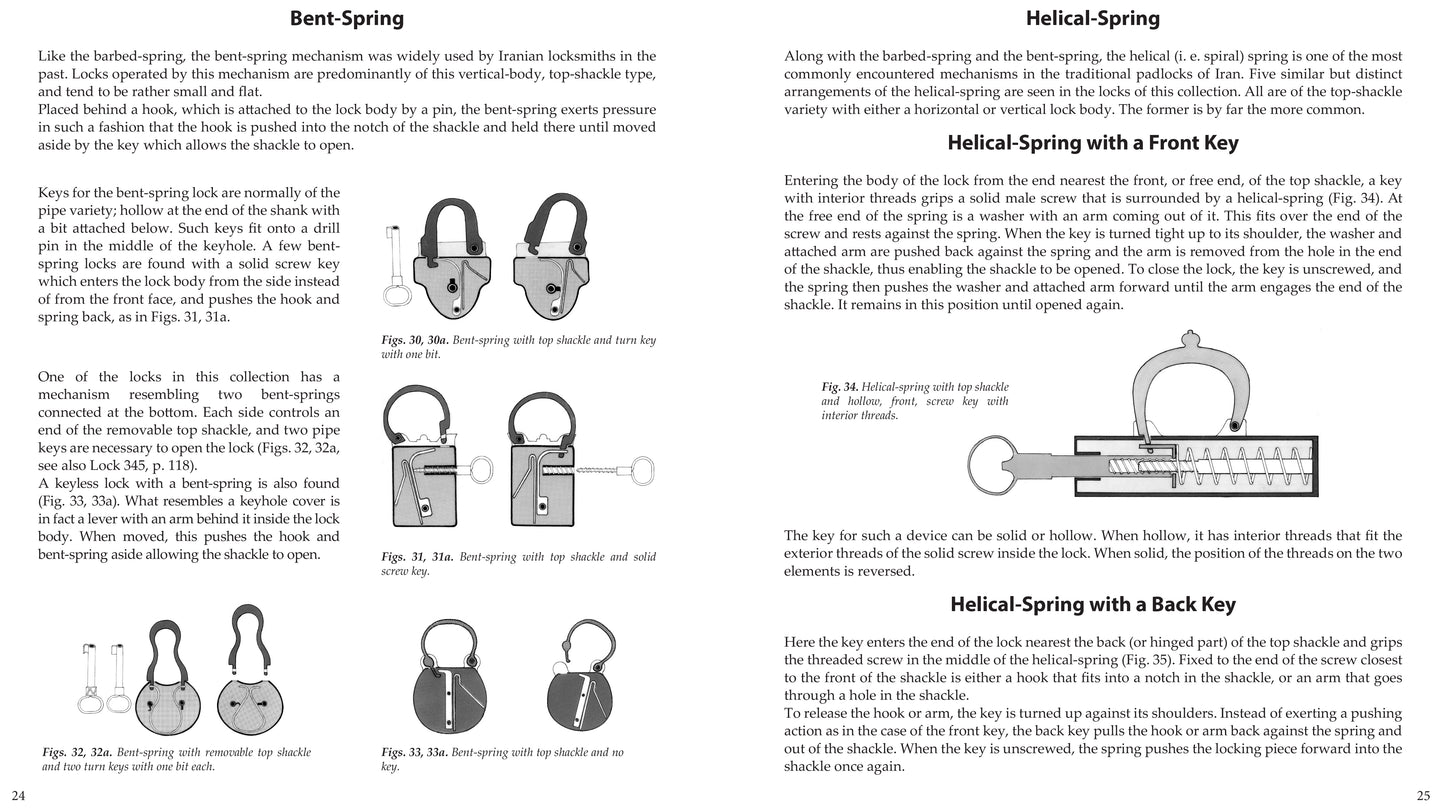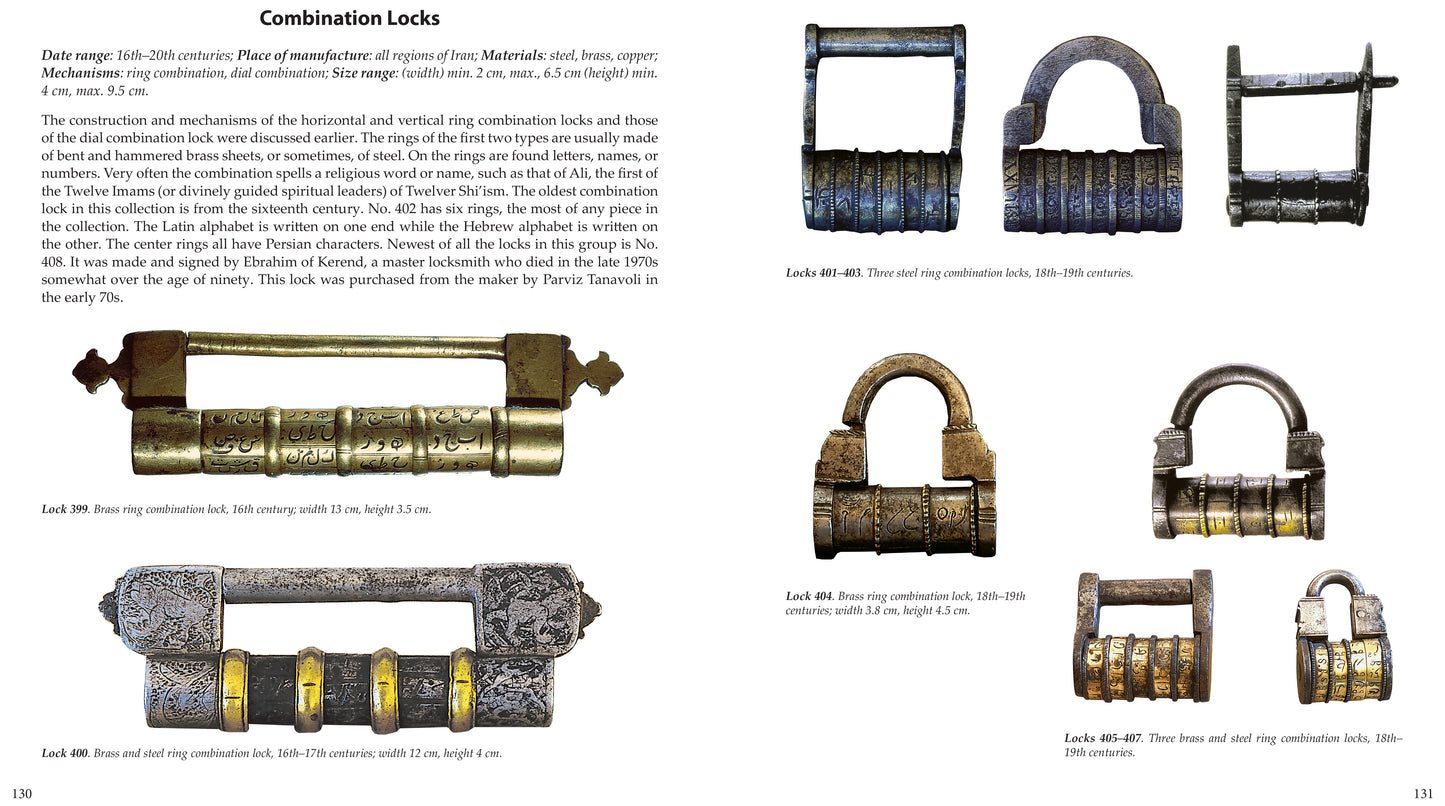Persian Locks
Persian Locks
Couldn't load pickup availability
View full details
A smaller version of this updated and expanded book was published by The Smithsonian Institution in 1976 with the title, "Locks from Iran: Pre-Islamic to Twentieth Century." In 2019 and 2020 the author edited his original book adding new text and a great number of new high-quality photos of locks which have been added to his collection in the 44 years since the first book was published.
In Iran, the padlock was developed in an amazing variety of sizes, shapes, materials, and mechanisms, the likes of which are less frequently encountered in Europe. On the whole, very little attention has been devoted to the history and development of the lock in Iran.
Parviz Tanavoli, contemporary Iran's leading sculptor, was first attracted to the locks of his own country because of their sculptural qualities. In this beautiful and informative book the author shares with us, in over 500 photos and drawings, the most interesting examples of locks from his famous collection which was first introduced to the American public by the Smithsonian Institute on the occasion of the American Bicentennial. You will also find detailed drawings which clearly illustrate the workings of the various locking mechanisms (e.g., barbed-spring, helical-spring, notched-shackle, hook and revolving catch, etc.) used in the locks in this book. All locks are dated and when known, the place of manufacture is given.
Parviz Tanavoli, the renowned and foremost Iranian artist, is known not just because of his role in Iranian modern art but for his very wide range of activities in history, art, culture and Iranian heritage. More than six decades of working as sculptor, painter, printmaker, writer, collector, researcher and patron of modern and contemporary art makes him the “Renaissance Man” of his motherland, Iran.
Most of his research and collections are focused on tribal and commoners’ art, their beliefs and its role in people’s everyday lives. His books on subjects such as Talismans, Persian Locks, Kohl Containers, Scales and Weights, and more than 10 books on Persian tribal rugs and carpets, shows his knowledge, understanding and interest in the importance of people’s art.
Tanavoli had an important role in the founding of Saqakhaneh, the most important Iranian artistic movement begun in the early 1960s. His intellectual support and his ideas of importing popular culture and common people’s life elements into art which, back in those days was limited to the elites of society, the highly educated and aristocrats, shows his deep feeling of culture and cultural heritage as well as modern art movements all over the world.
Locks have played an important role in Tanavoli’s sculpture to an extent that they have become part of the anatomy of his art. For more info see: www.Tanavoli.com
| IBPA Benjamin Franklin Award | 2022 | Runner-up |
